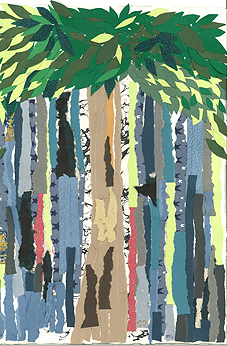Asia in My Life
Ngugi wa Thiong'o
The recent explosion of Chinese interest in African might obscure the fact that there has always been a small but significant migrant Chinese presence, South Africa mostly, but also in Zimbabwe. Fay Chung whose grandparents migrated to Rhodesia in the 1920s became an active participant in the anti- colonial struggle, at one time running for her life into exile in Tanzania, was a big player in the founding of Zimbabwe. She founded Zimfep which invited Kamirithu theater to Zimbabwe, a visit was scuttled by the Moi regime by simply banning the theater group and forcing one of its leaders, the late Ngugi wa Mirii, to flee to Zimbabwe, and under Zimfep, launched the Zimbambwe Community Theater Movement (It’s the subject of a book by L Dale Byam, Community in Motion: Theater for Development in Africa), ensuring that the continuity and expansion of the Kamirithu spirit. Mao Tse Tung never visited Africa but his thought has been part of the intellectual debate in the post-colonial era. His class analysis of Chinese society was seen as providing a more relevant model for analyzing African post-colonial social realities than the European Marxist model, and Kwame Nkrumah book, Class Struggle in Africa, has the Mao’s marks all over it. The notion of the Comprador bourgeoisie dependent and serving foreign capital and hence contrastable from the national bourgeoisie with its primary reliance on national capital has become an analytic model in political theory and development studies. The intellectual history of the continent would be the poorer without the journal, Transition, now based in Harvard, but founded by Rajat Neogy way back in 1962. Neogy, a brilliant and creative editor, was Uganda born and educated: he believed in the multi-cultural and multifaceted character of ideas, and he wanted to provide a space where different ides could meet, clash, and mutually illuminate. Transition became the intellectual forum of the New East Africa, and indeed Africa, the first publisher of some of the leading intellectuals in the continent, including Wole Soyinka, Ali Mazrui and Peter Nazareth. Transition published my short story, The Return, a turning point in my literary life. The story that captured what would later become so central a part of my aesthetic explorations in my novels, principally A Grain of Wheat et al, was the sole basis of my inclusion in the 1962 conference of African writers of English expression. Pages: 1 2 3 4 5 6 |
Essays in this Forum
Rethinking the Global South
by Mukoma Wa Ngugi From Indian Literature to World Literature: A Conversation with Satya P. Mohanty by Rashmi Dube Bhatnagar and Rajender Kaur Asia in My Life by Ngugi wa Thiong'o The Global South and Cultural Struggles: On the Afro-Asian People’s Solidarity Organization by Duncan Mceachern Yoon The Fault Lines of Hindi and Urdu by Sanjay Kumar Reframing Colonialism and Modernity: An Endeavour through Sociology and Literature by Gurminder K. Bhambra Varieties of Cultural Chauvinism and the Relevance of Comparative Studies by Tilottoma Misra Literature to Combat Cultural Chauvinism: A Response by Shivani Jha Is There an Indian Way of Thinking about Comparative Literature? by E. V. Ramakrishnan Modernity and Public Sphere in Vernacular by Purushottam Agrawal West Indian Writers and Cultural Chauvinism by Jerome Teelucksingh Oral Knowledge in Berber Women’s Expressions of the Sacred by Fatima Sadiki |
